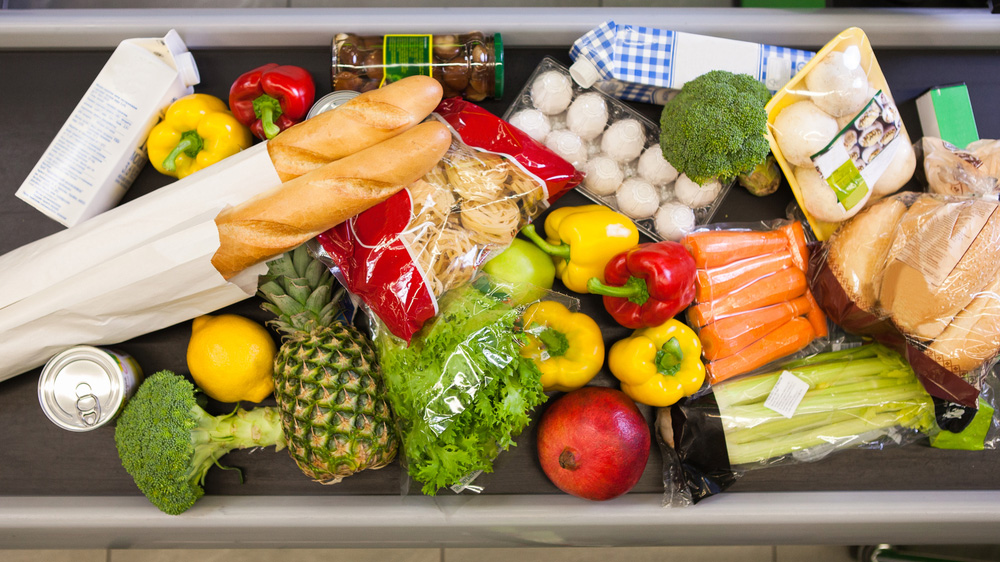Looking to regain energy and vitality? Integrating whole foods into your daily routine might just be the secret you’ve been searching for! These unprocessed, natural ingredients—such as vegetables, fruits, seeds, and whole grains—are packed with essential nutrients that deeply nourish the body. But how can you incorporate them without making your meals dull and repetitive? Through practical tips and surprising benefits, let’s explore how and why whole foods can awaken your health—and even your taste buds!
Why Choose Whole Foods?
Whole foods are unprocessed, natural products that retain all their fibers, vitamins, minerals, and antioxidants. Unlike ultra-processed foods, which often lose nutritional quality and can weaken the immune system, whole foods actively support good health. A Harvard University study revealed that the fibers found in whole grains help reduce the risk of heart disease and type 2 diabetes—an excellent reason to rethink daily food choices!
In addition to providing vital nutrients, whole foods are a treat for the palate. They encourage the exploration of natural flavors, which are far more diverse than one might imagine! Did you know that a simple piece of whole sourdough bread contains up to 200 different aromatic compounds? That’s far more complexity than the uniform, artificial flavors of processed foods.
The Benefits of Whole Foods for Physical Well-being
Sustained and Lasting Energy
Incorporating whole foods such as fruits, vegetables, and whole grains provides steady and continuous energy, unlike the quick but short-lived boost from refined sugars. The complex carbohydrates in whole grains are digested slowly, offering a consistent energy supply. According to a World Health Organization publication, a diet rich in whole foods helps regulate blood sugar levels, reducing fatigue caused by sugar fluctuations.
A Healthier Digestive System
Dietary fiber, abundant in whole foods, is essential for proper digestive function. It promotes regular bowel movements and nourishes the microbiome—the billions of microorganisms in our gut that play a crucial role in immunity and mental well-being. A French study conducted by INRAE highlighted the positive impact of whole grain fibers on microbiome diversity, showing significant improvements in digestion and immune system strength.
Strengthened Immune Defenses
Antioxidants, found in abundance in whole fruits and vegetables, protect cells from aging and damage caused by free radicals. Vitamin C, present in citrus fruits, and vitamin E, found in seeds and nuts, are among the best allies for boosting the immune system. A study by University College London found that a diet rich in colorful vegetables, berries, and nuts enhances the body’s resistance to infections.
Maintaining a Healthy Weight Effortlessly
Whole foods, rich in fiber, water, and protein, promote satiety while being relatively low in calories. By incorporating more vegetables, fruits, and legumes into your meals, you naturally reduce calorie intake while feeling fuller for longer. Research from Laval University in Quebec demonstrated that increasing dietary fiber consumption reduces cravings and helps maintain a healthy weight.
How to Incorporate Whole Foods into Your Daily Life
Cook Simply but Smartly
Opt for simple recipes that highlight whole foods: colorful salads, quinoa bowls with vegetables, and homemade fruit compotes. Meals that take less than 20 minutes to prepare can provide a wealth of nutrients without sacrificing taste or variety. For instance, try an oatmeal bowl topped with fresh fruit and nuts for a nutritious start to your day.
Choose Raw Over Processed
Do you usually buy pre-made sauces? Swap them for nut butters (such as tahini or unsweetened peanut butter) or high-quality extra virgin olive oil! This reduces hidden sugars, excess salt, and additives found in industrial products while enhancing natural flavors.
Opt for Nourishing Snacks
Replace chocolate bars and industrial snacks with natural alternatives: a handful of nuts, an apple, carrot sticks, or fresh dates. These foods are packed with healthy fats, vitamins, and minerals. Recent research from the University of California found that eating nuts improves concentration and reduces hunger—a perfect choice for healthy snacking!
Modify Your Favorite Recipes
No need to overhaul your diet overnight! Gradually adapt your favorite recipes by incorporating more whole foods. For example, swap white pasta for whole-grain versions, add fresh vegetables to your sandwiches, and try brown rice or quinoa instead of white rice.
A Few Recipe Ideas for Inspiration
Quinoa Salad with Vegetables and Seeds
A colorful and nutritious dish featuring quinoa (a plant-based protein source) mixed with grated carrots, beets, spinach, and sunflower seeds—a true vitality boost in a simple meal!
Oatmeal with Fresh Fruits and Nuts
Heat rolled oats in plant-based milk or water, then top with banana slices, berries, crushed nuts, and a pinch of cinnamon. Delicious, quick, and energizing.
Oven-Roasted Vegetables
Chop seasonal vegetables (carrots, sweet potatoes, zucchini, etc.), drizzle with olive oil, sprinkle with herbs, and roast for 30 minutes. A perfect side dish for any meal!
Conclusion
Integrating whole foods into your daily diet is more than just a food choice—it’s a lifestyle, a way to reconnect with your inner well-being. By providing your body with pure and complete nutrients, you give it the tools to thrive. So, are you ready to embark on a journey of authentic flavors and invaluable health benefits? One thing is certain—your body and taste buds will thank you!
Sources:
- Harvard University – Whole grains and heart health : https://www.hsph.harvard.edu
- University College London – Impact of antioxidants on immunity : https://www.ucl.ac.uk
- University of California – Nut consumption and cognitive function : https://www.ucdavis.edu
- American Heart Association – Benefits of fruits and vegetables : https://www.heart.org
- Mayo Clinic – Whole foods and balanced nutrition : https://www.mayoclinic.org


